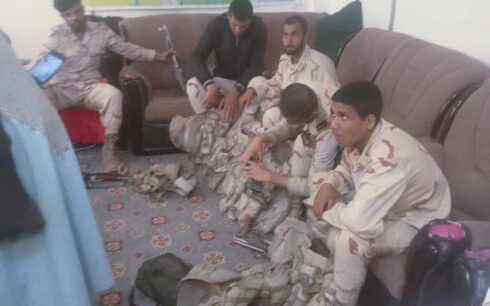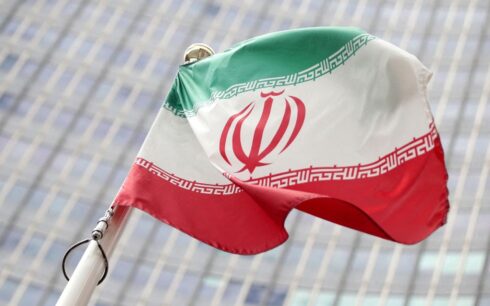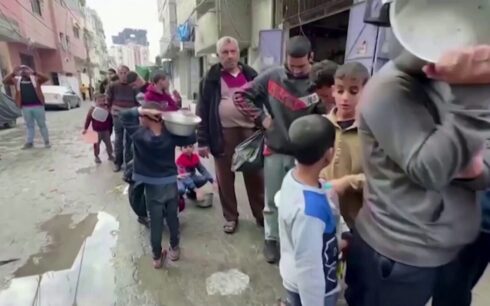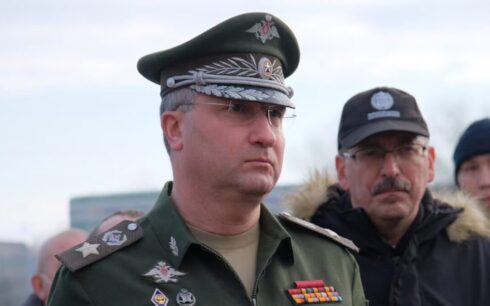Iran’s Supreme Leader Ayatollah Ali Khamenei on Monday said the wave of suspected poisonings of schoolgirls in recent months was an “unforgivable crime” and that perpetrators would not be shown any leniency.
“If there are any people involved in the matter, and there certainly are… the perpetrators must be given the most severe of punishments,” he said during a tree planting ceremony on Monday.
Khamenei urged officials in the country to investigate the alleged poisonings of school girls with utmost seriousness, state media IRNA reported.
Iran’s President Ebrahim Raisi also issued orders for the issue to be investigated but said the poisonings were a new plot by Iran’s enemies.
Speaking during his cabinet meeting on Sunday, Raisi referred to the Iranian intelligence minister’s report on the poisoning crisis and said: “This new plot of the enemy aimed at intimidating the students, our dear children, and their parents, is an inhumane crime.”
“This move is another ring in the chain of the enemy’s plots aimed at creating tension in the society, disturbing the public opinion and horrifying the offspring of this land and territory, and its roots need to be identified and seriously dealt with,” he said as cited by IRNA.
On Monday, BBC reported that so far more than 1,000 girls at dozens of schools have been affected by the suspected poisonings, while CNN reported that there had been a sharp increase in the number of suspected cases in the past few days.
The suspected poisonings started in November and have affected hundreds of schoolgirls at more than 50 schools across 21 of Iran’s 30 provinces, AP reported.
CNN however stated that Saturday is believed to have been the worst day yet, with incidents reported at dozens of schools. Social media videos showed schoolgirls being escorted to ambulances and using oxygen canisters at locations across the country. CNN stated it had been able to verify dozens of these new incidents, using video and witness testimony, across 10 provinces.
Both the US and United Nations have called on the Iranian authorities to fully investigate the suspected poisonings and hold those responsible accountable.
CNN meanwhile spoke with four medical sources who treated the students, one teacher and four parents of the victims, who all claimed they were pressured not to speak about the issue.
One doctor who has treated several of the students told CNN he believed his phone was being monitored and that hospital administrators had ordered doctors to refrain from speaking in public about the issue.
On Sunday, social media videos showed multiple schoolgirls receiving medical attention at Yazd hospital, in central Iran.
Parliament chaos
Meanwhile Iran International reported that Iran’s Parliament descended into chaos Sunday as a lawmaker tried to stop another one from voicing his constituents’ anger over the suspected school poisonings.
During a budget session, Seyed Ghani Nazari, the representative of Khalkhal in northwestern Ardabil Province, used his time to speak about his constituents’ anger over the poisoning of schoolgirls in his district.
But hardline lawmakers shouted him down. Speaker Mohammad-Bagher Ghalibaf also intervened, and asked Nazari to only speak about the budget bill, Iran International reported.
“Mr Ghalibaf, what do you expect me to talk about when students were hospitalized in Khalkhal? It’s my duty to demand the government and responsible bodies to investigate. My phone has been ringing since morning and people are asking me to pursue the matter,” Nazari said as other lawmakers joined in the dispute, shouting and gathering around Nazari.
Authorities have so far released very little information about their investigations and have not yet announced any arrests.
According to BBC however, some Iranians believe the girls’ schools are being targeted by hard-line elements to stop them receiving an education while others suggest the authorities may be punishing girls for their leading role in the nationwide anti-government protests that erupted in September.
The first confirmed case was reported at a school in the city of Qom on 30 November, when 18 schoolgirls fell ill and were taken to hospital.





